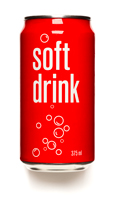Too much sugar in food or drink can make it high in kilojoules, or ‘energy dense’. This can make it harder to control your weight. It has also been linked with tooth decay. Not all sugars are the same. There are:
Naturally occurring sugars
These are found in milk, fruit, vegetables and legumes. They are eaten in smaller quantities, along with many important nutrients.
Added sugars
These have been refined from plants such as sugar cane. They can be added to food or drink in large amounts to make cakes, biscuits and soft drinks. Added sugars may not come with helpful nutrients and can increase the energy of a food or drink. So they are sometimes called ‘energy dense’ and ‘nutrient poor’.
Sometimes people think that eating too much sugar leads to diabetes, because diabetes is a condition where blood glucose (or blood ‘sugar’) needs to be managed. Sugar itself does not lead to diabetes. However, being overweight increases a person’s risk of type 2 diabetes and too much added sugars can cause weight gain.
Source: Dietitians Australia (formerly Dietitians Association of Australia) (2013): Smart Eating For You. Canberra, Australia.




